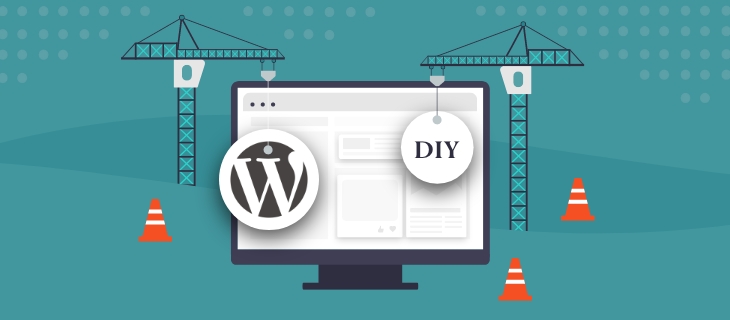WordPress vs. DIY Site Builders: Choosing the Right Platform for Your Website

When it comes to building a website, the choice between using WordPress and a DIY site builder like Squarespace, Wix, or Weebly is crucial and can be a challenging landscape to navigate if you’re new to this space. Each platform offers distinct advantages and challenges, depending on your needs. Let's explore what each has to offer to help you make an informed decision.
WordPress: A Flexible Powerhouse
What is WordPress?
WordPress is an open-source content management system (CMS) that powers a significant portion of the web. Known for its flexibility, it allows users to create a variety of websites from blogs to complex business sites.
Pros of WordPress:
- Flexibility and Customization: With thousands of themes and plugins, WordPress offers unparalleled customization options.
- Control Over Hosting: You can choose any hosting provider, which means you can switch hosts without losing your site.
- SEO Advantage: WordPress sites are generally seen as more SEO-friendly, with extensive plugins like Yoast SEO to boost your visibility.
- eCommerce Support: With plugins like BigCommerce and WooCommerce, WordPress provides robust tools to create an online store.
- Scalability and Adaptability: WordPress can grow with your business, adapting easily to increased traffic and evolving needs. Whether you're expanding your service offerings or scaling up operations, WordPress can accommodate complex changes and additional functionalities without requiring a platform switch.
Cons of WordPress:
- Learning Curve: It can be more complex to learn, especially for those without technical skills.
- Maintenance: Requires regular updates and maintenance to themes, plugins, and the core platform to ensure security and functionality.
- Speed: Without proper optimization, WordPress sites can become slow due to heavy plugins or themes.
DIY Site Builders:User-Friendly Simplicity
What are DIY Site Builders?
Platforms like Squarespace, Wix, and Weebly are designed to be user-friendly, allowing users with little to no technical experience to build and manage websites. They provide a no-code, drag-and-drop interface that simplifies the web design process.
Pros of DIY Site Builders:
- Ease of Use: They offer intuitive interfaces that make website building accessible to everyone.
- All-in-One Packages: Hosting, security, and technical maintenance are usually included.
- Design Templates: Comes with a range of pre-designed templates that you can easily drop your logo, colors and images into.
Cons of DIY Site Builders:
- Limited Customization: While they offer ease of use, they lack the deep customization options available with WordPress. You may end up with a website that looks similar to your competitors.
- Proprietary Platform: You are tied to the platform’s hosting and cannot migrate your site to another provider.
- SEO Limitations: Generally, there are fewer SEO tools and options compared to WordPress.
- Limited Scalability: Businesses often outgrow their DIY site builders as they struggle to accommodate the growth and scaling needs of larger or more complex businesses, potentially requiring a platform change as your business evolves and demands more sophisticated features.
The Value of Professional Design
Regardless of which platform you choose, the importance of having a professional designer cannot be understated. Whether it's WordPress with its vast potential for customization and growth, or a straightforward, template-based platform like Squarespace, a professional designer ensures your site is not only functional but also aesthetically pleasing and aligned with your brand's identity. At efelle, our expertise in web design, content strategy, and SEO ensures that your site excels in both form and function, adapting to your business’s growth and evolving needs. Our experts are ready to tailor a solution that not only meets but exceeds your expectations. Get in touch today.